What I've done lately:
- Wrote a post about playing Lancer
- Wrote a review for This Is Not Your House
By the point I closed the game window, Steam told me I had a total of 19 minutes of playtime - not even a lunch break worth
of gaming, yet a full experience nonetheless. But such a short experience can be trick to talk about, or recommend,
depending on your expectations. Personally, I'm vehemently against spoiler culture and the entire idea that the only
reaction that matters when enjoying media is surprise, but there's no point in going deep into what
happens in this game - not because it doesn't matter, mind you - but instead talking about the concepts it deals with.
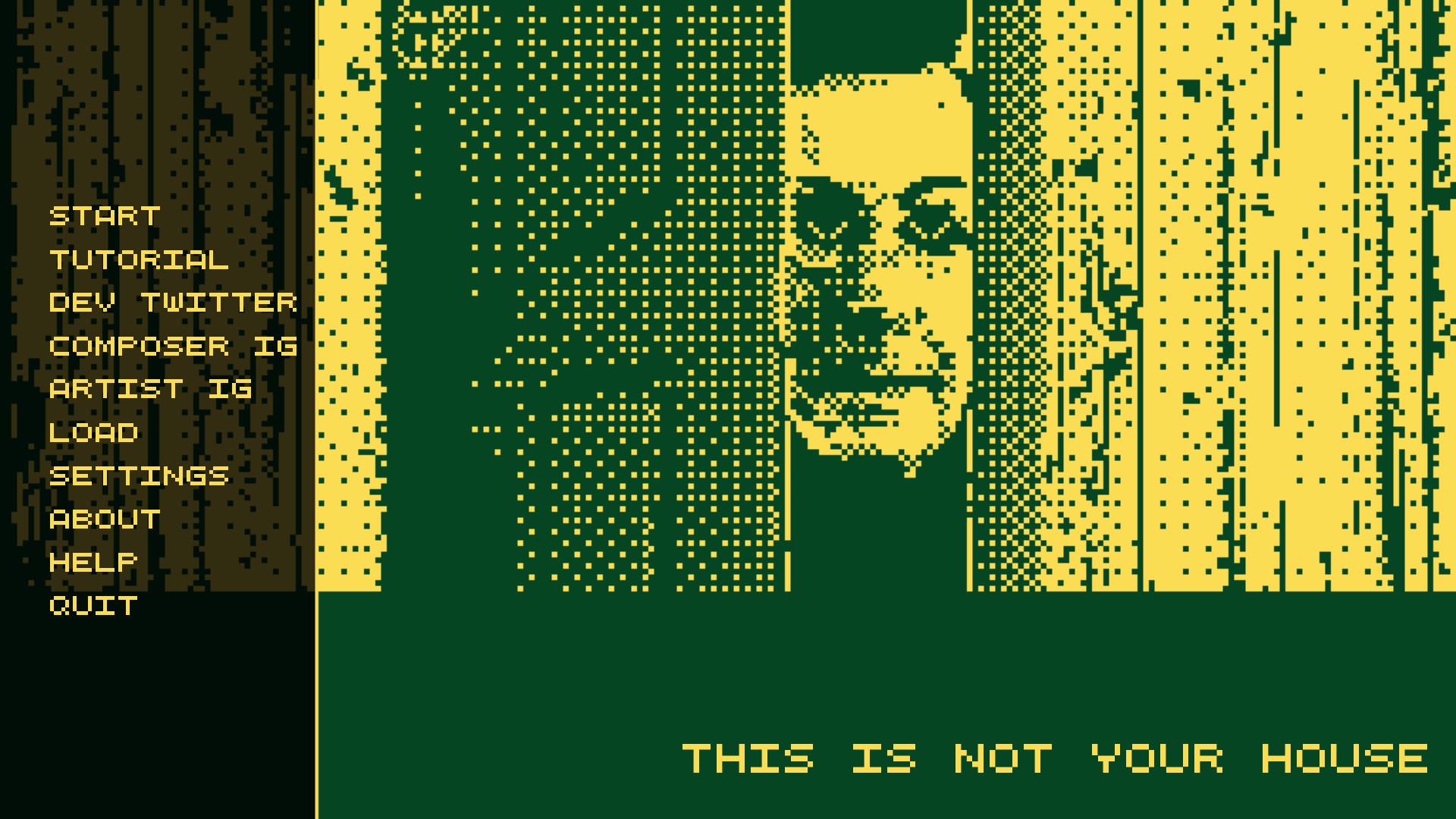
This Is Not Your House is a CYOA visual novel with a minimalist color scheme that does wonder to heighten the sensation of
living an outlandish reality. You play as Roger, a man returning from grocery shopping, parking his car and carefully heading to
his front door. Roger is terrified of being attacked on the way, having recently read the news of a similar incident;
its a suburban fear, of being cornered so close to your safe haven, the moment one would drop their guard and not be
wary of strangers. Roger is scared, but sure of himself and his demeanor, until he realizes he can't open his front door.
The key doesn't turn, even after double checking, and after a while he realizes someone is inside.
A strange lady greets him, asking what's wrong. Roger tells her to get out, that he lives there.
The Homeowner replies that this home doesn't belong to him.
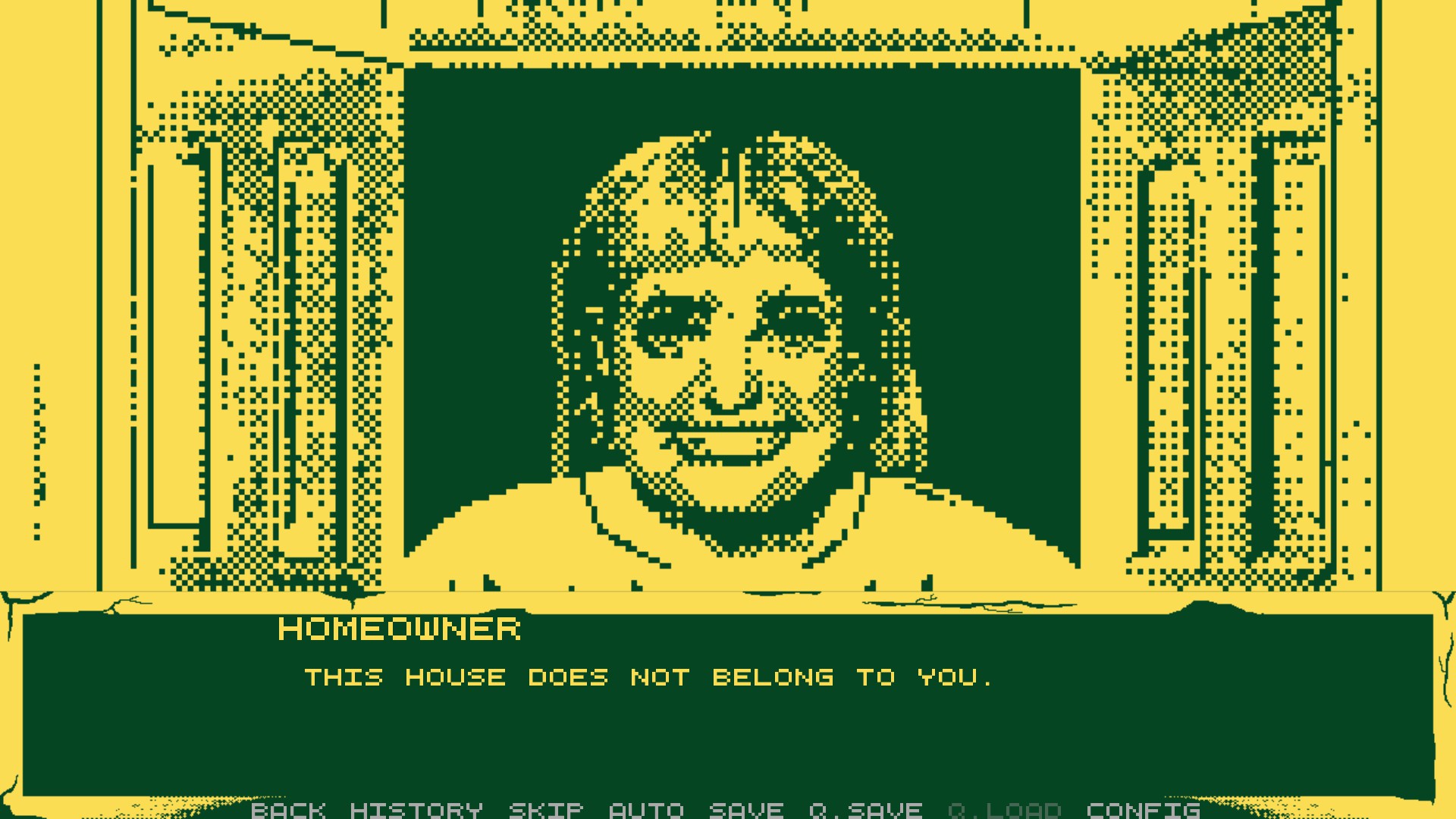
There's a simplicity there that This Is Not Your House takes pride in exposing. Roger's first instinct is to tell the lady
to check the deed - a piece of documentation - that will prove him right. The Homeowner replies that a deed s just a
piece of paper. Roger rebukes, saying that its a piece of paper that proves the house is his property.
And, finally, the Homeowner says that personal property is a social construct.
In this quick interaction, the game lays down the two ideas that it will explore for the rest of its journey:
The first, one that has been called "Social Anxiety Horror", the fear of being in a situation where you face something
that goes against the norms you're used to, something that might trigger a trauma or neurodivergence -
a stranger is in your home and won't leave. The second, what it means to live in society, what makes you a *you*
in this world - documents, clothing, a name, a background.
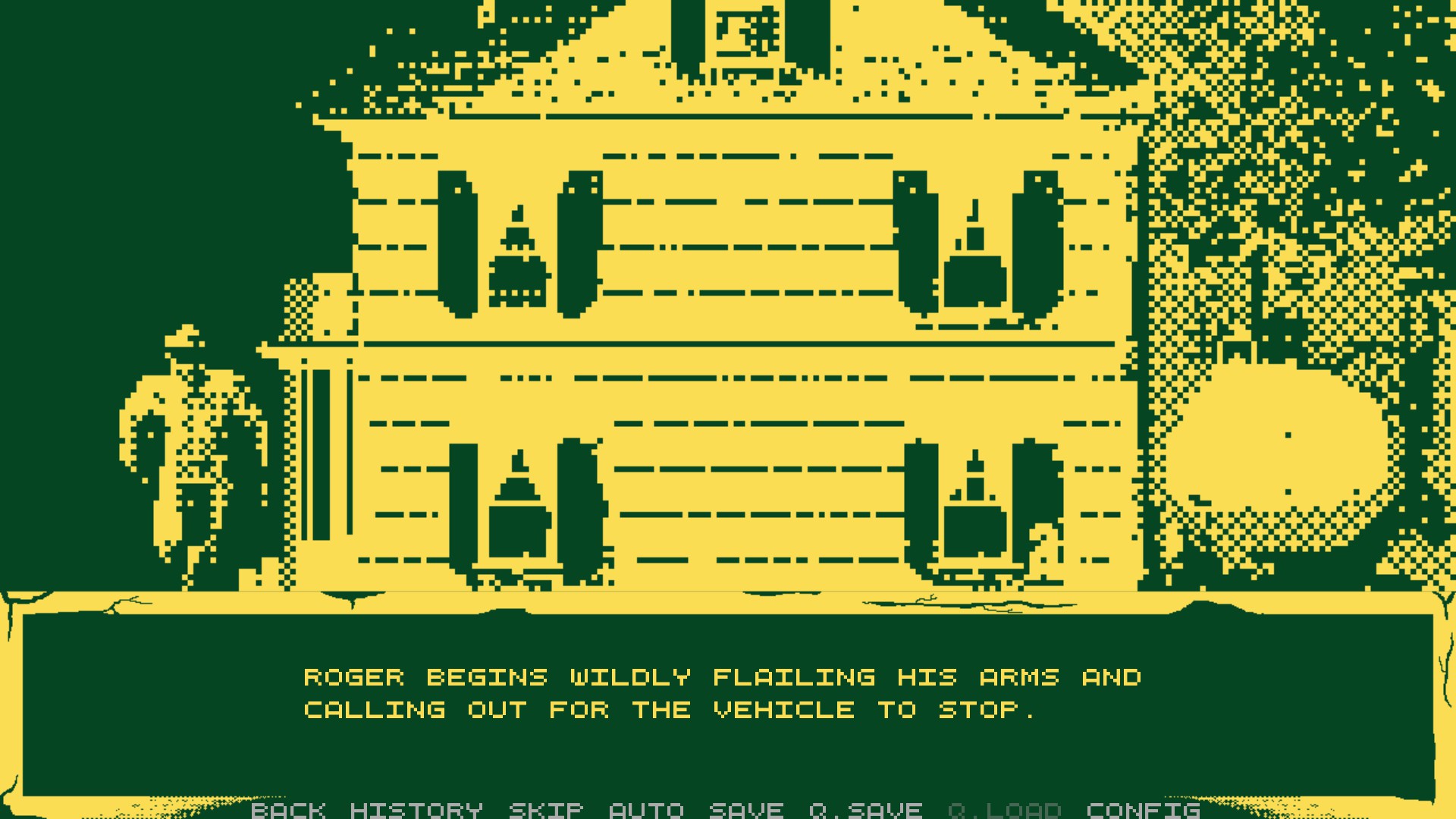
While the interaction with the Homeowner is the driving force of the plot, its not just that which drives the horror in this
game. There is a crucial idea there, and the fact that she is right: Personal property *is* a social construct.
It is absurd to have a piece of paper that says you own a piece of land. And yet, that flimsy idea is what gives us grounding in
our day to day lives, alongside so many others. The clothes that you wear show that you might be a vagrant or a decorated officer.
Your background check will say if you are a junkie or a respectable citizen. Your popularity will define if you are a calm person,
worthy of respect, or a furious madman, despised and scorned.
Without his deed, Roger can't prove he owns his home. And breaking inside it could end with his being arrested or maybe even
shot - a situation not rare in the United States. Even worse, breaking inside a home that's occupied by someone who claims to
own it. Despite being certain of his innocence, Roger would still have to prove that he had the right to enter his own home
- and risk losing the debate.
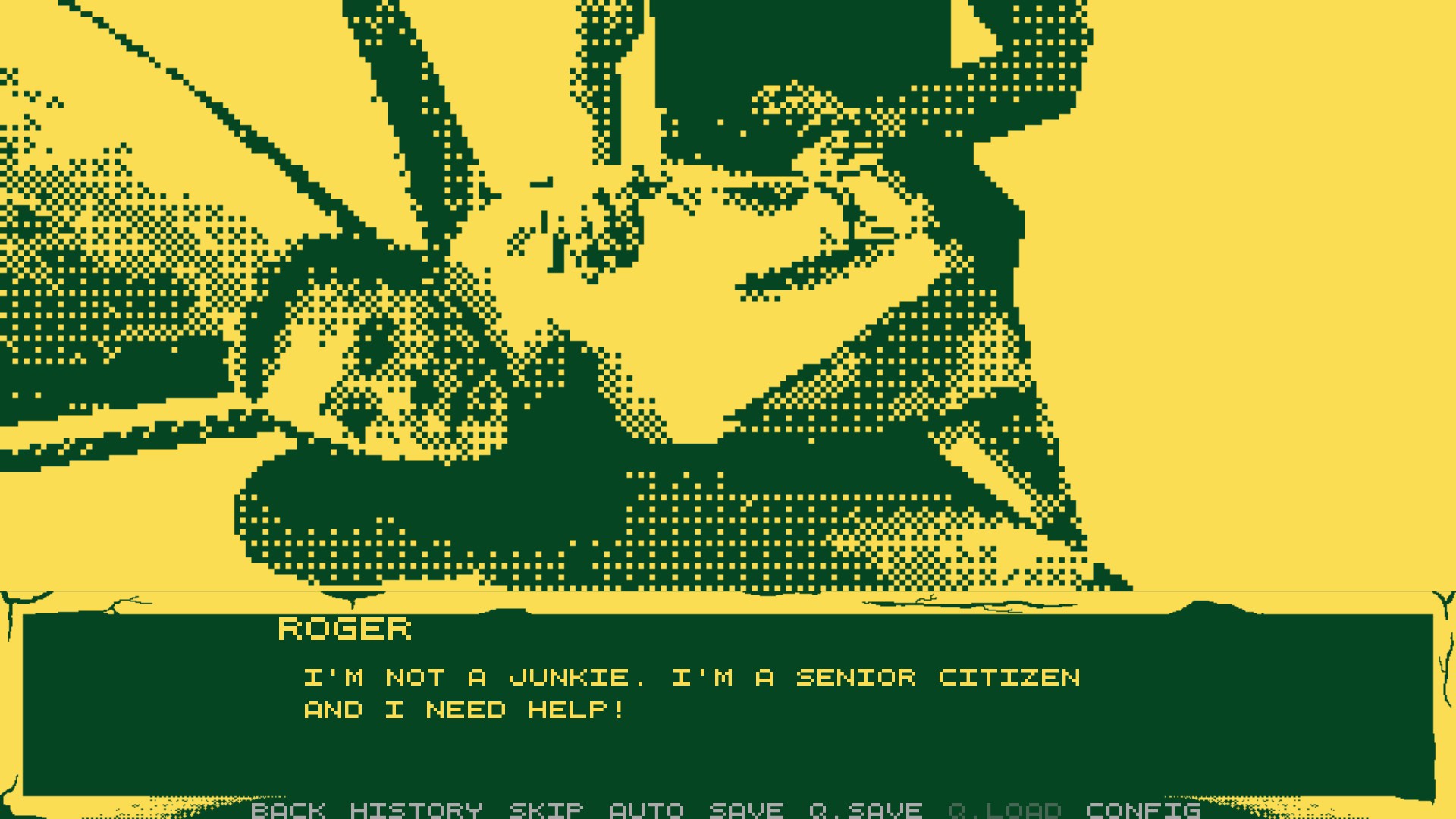
The ease at which Roger is left standing on his porch is a testament to how fragile our safety is. You might ask yourself,
why not call someone for help? A neighbour perhaps? And yet so many people barely know those who live around them -
if they even have that kind of neighbourhood to begin with. A family member? Could you remember their number? And if you do,
are you in good terms with them? How close by do they live? How many hours - or days - would it take for them to arrive?
Where would you be in the meantime? Stay at a hotel? How much do you have? Are your debit and credit cards with you?
Can you reach the nearest place? Do you even know where the nearest hotel is? Now imagine losing your phone, your clothes,
your car. Imagine being naked, on the streets, asking strangers for help, saying someone stole your home, asking for a place
to stay, asking to call for your family or a friend.
See how easily everything can fall apart?
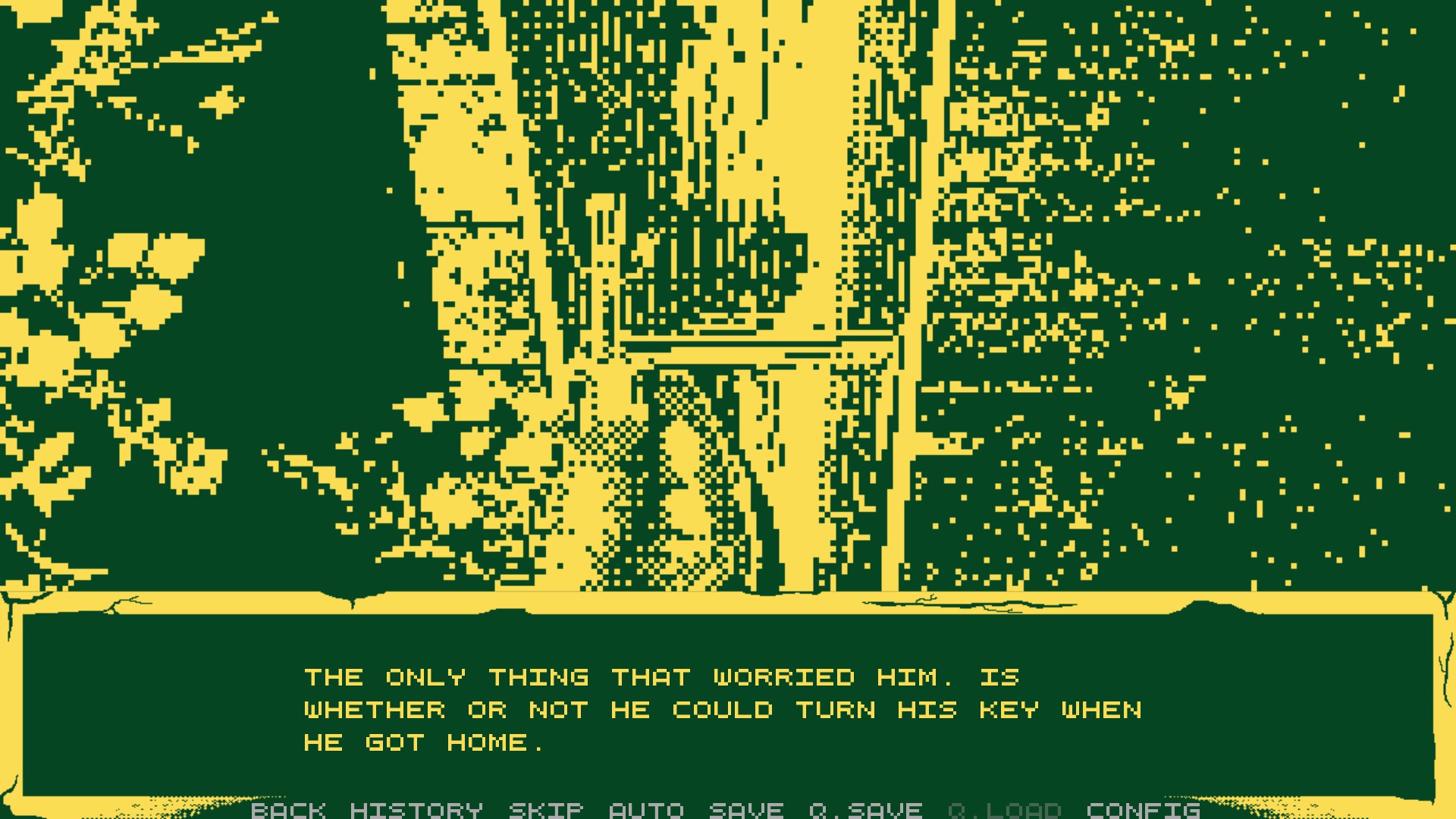
This Is Not Your House is a game about bureaucracy, identity and what it means to be you in modern society - a concept that
is far more terrifying than dealing with a very tangible home invader.
- Wrote a post about playing Lancer
- Wrote a review for This Is Not Your House